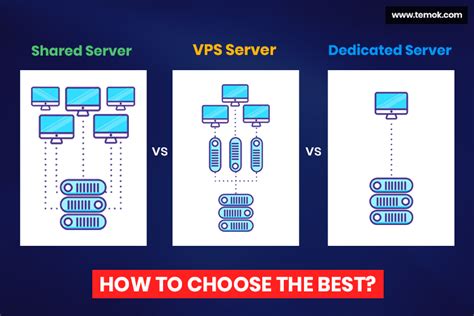Introduction
When it comes to hosting your website, you have two main options to choose from: a dedicated server or a virtual private server (VPS). Both have their advantages and disadvantages, and choosing the right one depends on your website’s specific needs. In this article, we’ll take a closer look at dedicated servers and VPSs and help you decide which one is the best fit for your website.
Dedicated Server
A dedicated server is a physical server that is entirely dedicated to your website. This means that you have complete control over the server and can customize it to your specific needs. Dedicated servers are ideal for large websites that receive a lot of traffic and require a lot of resources, such as e-commerce sites or streaming platforms. One of the biggest advantages of a dedicated server is that you have complete control over the hardware and software. This means that you can install any operating system or software that you need without any restrictions. Additionally, dedicated servers are often faster and more reliable than VPSs since you don’t have to share resources with other websites. However, dedicated servers can be expensive, and they require technical expertise to set up and maintain. Additionally, if your website doesn’t require a lot of resources, a dedicated server may be overkill and a waste of money.
VPS
A VPS is a virtual server that is created by partitioning a physical server into multiple virtual servers. Each VPS operates as an independent server with its own operating system, resources, and applications. VPSs are ideal for smaller websites that don’t require a lot of resources but still need more flexibility than shared hosting. One of the main advantages of a VPS is that it is more affordable than a dedicated server. Additionally, VPSs are easy to set up and maintain, and you can upgrade or downgrade your resources as needed. VPSs are also more secure than shared hosting since each VPS operates independently. However, VPSs do have some limitations. Since you are sharing resources with other websites on the same physical server, you may experience slower performance if other websites are using a lot of resources. Additionally, you may not have complete control over the server, and some software may not be compatible with the VPS environment.
Conclusion
Choosing between a dedicated server and a VPS depends on your website’s specific needs. If you have a large website that requires a lot of resources, a dedicated server may be the best option. However, if you have a smaller website that needs more flexibility than shared hosting, a VPS may be the way to go. Ultimately, the choice comes down to your budget, technical expertise, and website requirements.
